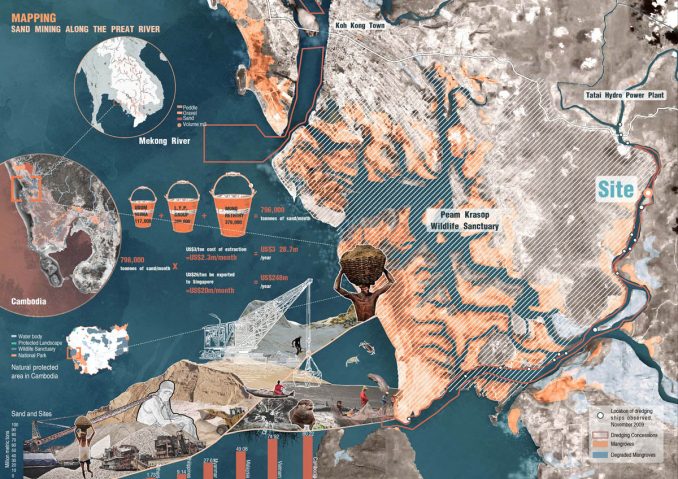
The fast-growing market for sand in Singapore is directly being linked to widespread damage to coastal ecosystems and fish stocks. And most of its exports have come from neighbouring Cambodia. Although Cambodia maintains that it has banned sand exports, an investigation by the NGO Global Witness has estimated that 796,000 tonnes of sand are still being extracted every month from Koh Kong province in South West Cambodia [1].
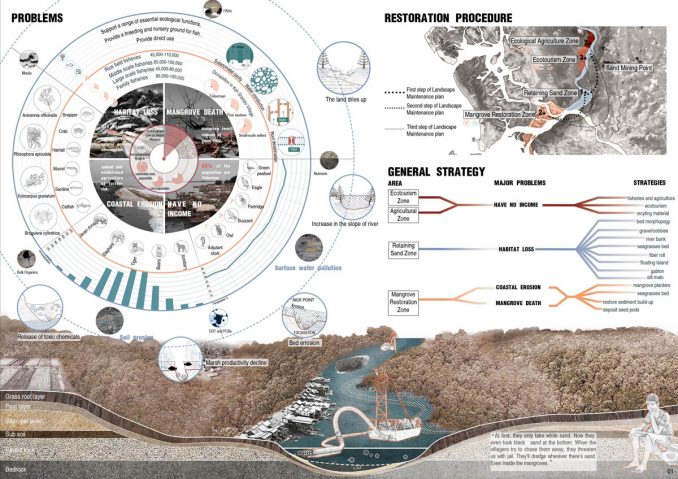
As a result, the Great Wall of the coastline – the mangroves – is facing survival problems. Frequent and extensive sand mining has caused the mass extinction of mangroves at the estuary of the Preat River, which means the loss of the first natural barrier against seawater erosion, sea-level rise, tsunamis and typhoons, and the destruction of a vital and fragile ecosystem on which thousands of families depend for their survival. How does this need to be remedied? We began to think about the possibility of combining mangrove population conservation and fisheries production to build a link between ecological restoration and ecological economy.
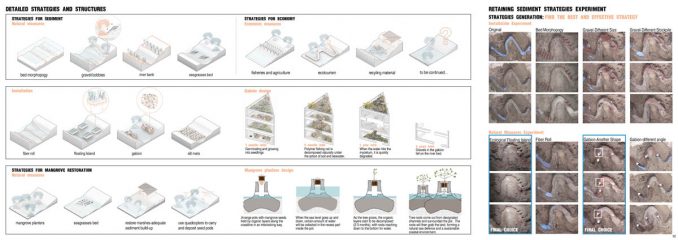
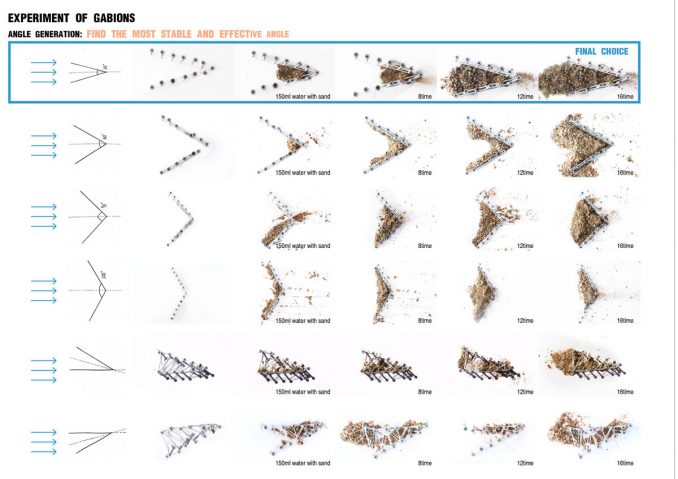
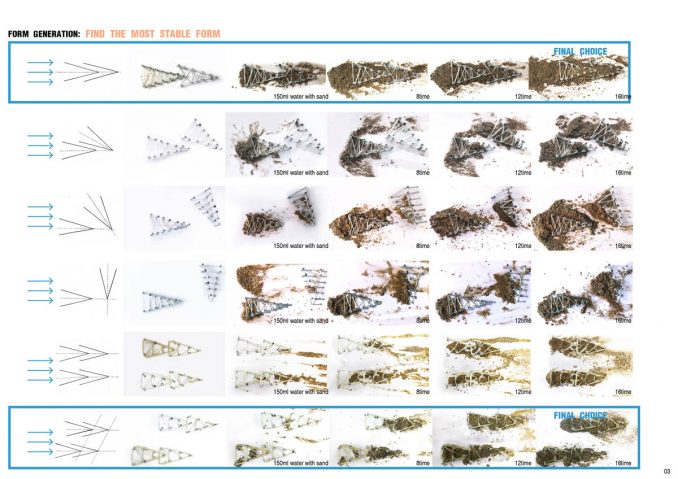
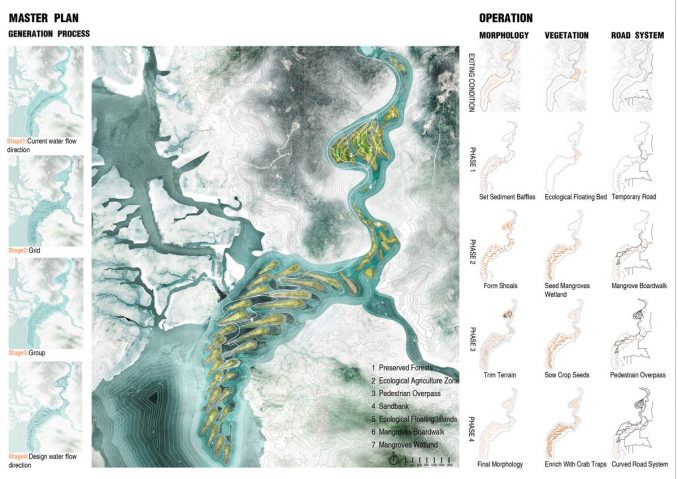
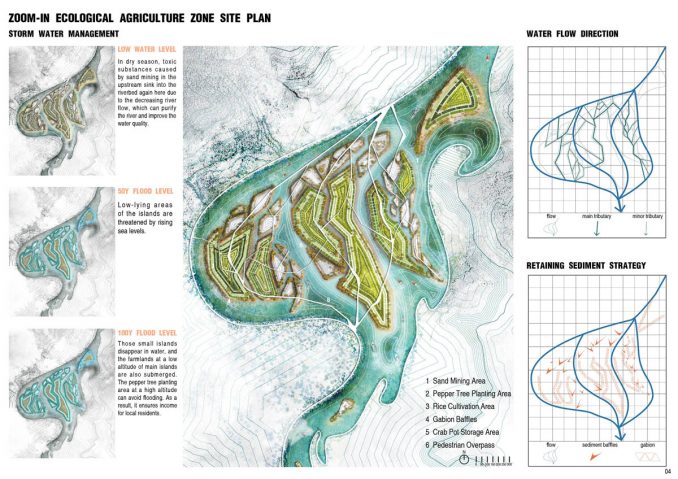
The plan is divided into three phases. In the first year, gabions will be applied to sand mining points. Regularly arranged gabions can trap the sediment carried in the river and fill the gap. At the same time, they can divert, reduce the flow velocity, further accelerate the sediment deposition rate and form islands. Ten years later, mangrove planters will be placed at the estuary of the river. The extending mangrove root system is the last barrier before sediment enters the sea. The gradually stacked sediment provides a good habitat for mangroves and other animals that depend on it. In the last stage, the government supports the development of mangrove eco-tourism, and farmers can obtain agricultural products from the restored wetlands, establishing a sustainable ecological economy. In this way, people get resources from nature, and creatures in nature get shelter from humans to sustain the symbiotic relationship between people and animals in this habitat.
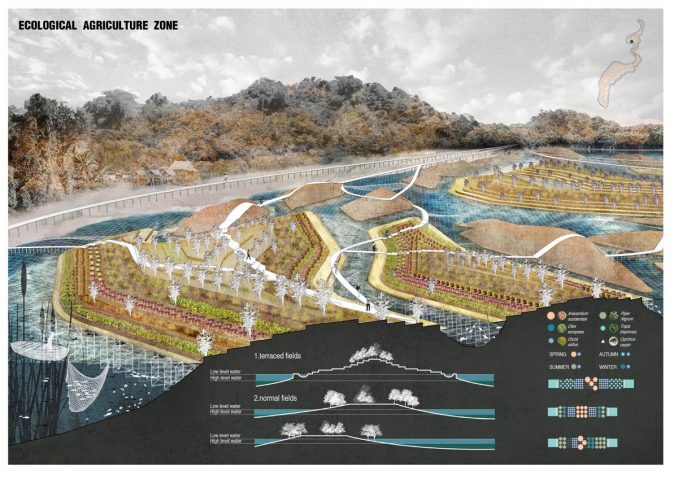
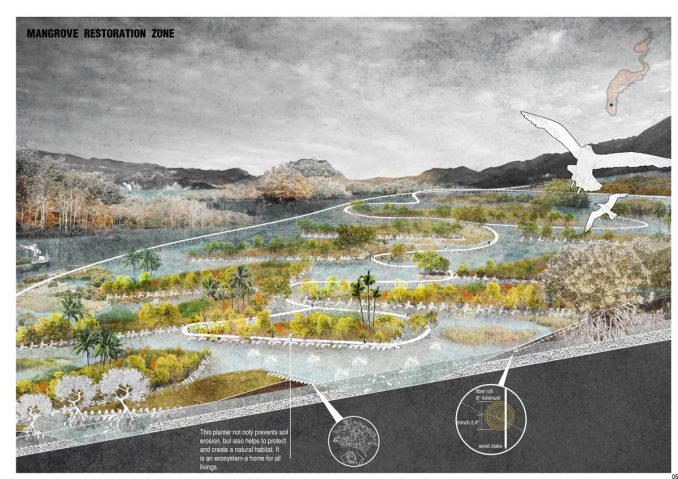
[1] Shifting Sand: how Singapore’s demand for Cambodian sand threatens ecosystems and undermines good governance https://www.globalwitness.org/en/archive/shifting-sand-how-singapores-demand-cambodian-sand-threatens-ecosystems-and-undermines-good/
Student Project | Yanqi Tang & Lulin Tong | Time is running out of sand
Student Names: Tang Yanqi (National University of Singapore) & Tong Lulin (South China University of Technology)
Supervisor: Zhu Mingjian
Text and Images: Tang Yanqi & Tong Lulin
